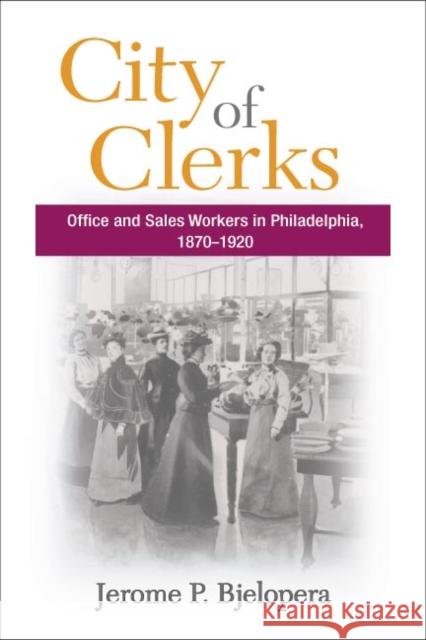City of Clerks: Office and Sales Workers in Philadelphia, 1870-1920 » książka
City of Clerks: Office and Sales Workers in Philadelphia, 1870-1920
ISBN-13: 9780252072277 / Angielski / Miękka / 2005 / 232 str.
Below the middle class managers and professionals yet above the skilled blue-collar workers, sales and office workers occupied an intermediate position in urban America's social structure during the age of smokestacks. In "City of Clerks Jerome P. Bjelopera traces the shifting occupational structures and work choices that facilitated the mergence of a white-collar workforce. He describes the educational goals, workplace cultures, leisure activities, and living situations that melded disparate groups of young men and women into a new class of clerks and salespeople. Previously neglected by historians, these young clerks became the backbone of industrial-era business and a key to their success. By surveying business school records, census and directory records, and business archival materials. Bjelopera paints a fascinating picture of the lives led by philadelphia's male and female their own clubs, affirmed their "whiteness," and even challenged sexual norms. By mapping the relationship between these workers' self-expectations and the shitting demands of their employers, "City of Clerks reveals how the notion of 'white collar" shifted over half a century.











